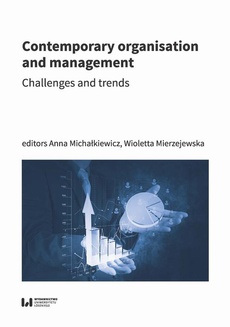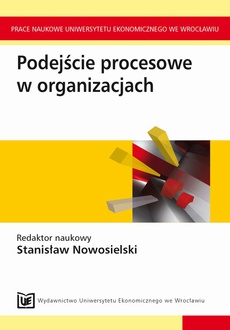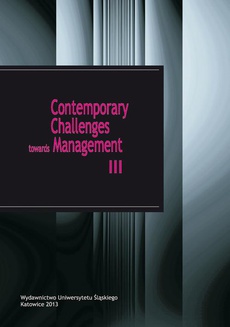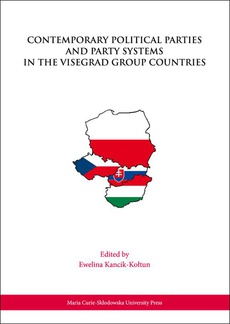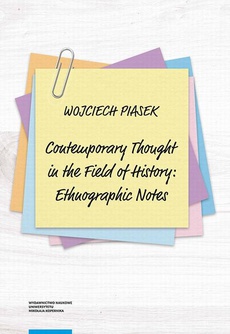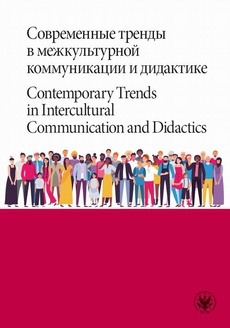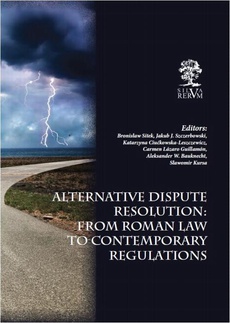POLECAMY
Contemporary organisation and management
Challenges and trends
Redakcja:
Wydawca:
Format:
ibuk
Contemporary organizations operate in an increasingly turbulent environment that generates not only predictable changes, but also “black swans”. Winning organisations must be agile, flexible and constantly learning. Changes in the management system cover each of its components, from strategy, through systems, processes, structure, staff, organisational culture and other elements. The management science follow changes both in business environment and in management of organisations. The most important trends are described and new theories emerge.
The monograph includes 29 articles written by 50 authors presenting different theoretical and empirical studies. In five parts of that book the most important challenges and trends concerning strategie management; modern approaches, methods and measures in management; sustainability and CSR; HR Management; and other were indicated. We believe that content of that book leads us to better understanding challenges and trends of contemporary organisations and management.
| Rok wydania | 2020 |
|---|---|
| Liczba stron | 478 |
| Kategoria | Publikacje darmowe |
| Wydawca | Wydawnictwo Uniwersytetu Łódzkiego |
| ISBN-13 | 978-83-8220-334-9 |
| Numer wydania | 1 |
| Język publikacji | polski |
| Informacja o sprzedawcy | ePWN sp. z o.o. |
Ciekawe propozycje
Spis treści
| Introduction | 9 |
| PART 1. Strategic challenges for contemporary organizations | 13 |
| Michał Młody, Adam Weinert, The importance of technological anxiety for the digital transformation of industrial processing companies in Poland | 15 |
| Katarzyna Kowalska, Izabela Kowalik, Challenges faced by SMEs in their digital transformation towards Industry 4.0 | 35 |
| Marta Najda-Janoszka, Value capture dynamics – opportunity-driven changes | 49 |
| Edyta Ropuszyńska-Surma, Magdalena Węglarz, Identification of new business models in micro and small enterprises in the energy sector | 63 |
| João Maciel, Joanna Radomska, Susana Costa e Silva, Challenges of international market selection – the perspective of Mexican and Brazilian multilatinas | 77 |
| Monika Sady, Piotr Buła, Dual mission of startups: defining and situating the concept | 95 |
| PART 2. Modern approaches, methods and measures supporting management | 113 |
| Joanna Szydło, Scientific reasoning in management. The role of abduction in research process design | 115 |
| Grzegorz Baran, Design Science Approach to Management | 131 |
| Alicja Kowalska, The benefits of an anthropological approach in modern management sciences research | 147 |
| Amadeusz Miązek, Justyna Światowiec-Szczepańska, The application of content analysis as a research method in management sciences | 159 |
| Grażyna Wieteska, How to measure SCRES? – the perspective of flexibility and redundancy in relationships with suppliers | 173 |
| PART 3. Sustainability and CSR as important trends in modern management | 203 |
| Letycja Sołoducho-Pelc, Sustainable Entrepreneurship. Utopian Idea or a New Business Model for the 21st Century? | 205 |
| Monika Jedynak, Aneta Kuźniarska, Karolina Mania, Sustainable development of suppliers – a systematic review of the literature | 221 |
| Jolanta Maj, Natalia Kasperek, The Influence of Corporate Social Responsibility on the Attractiveness of Employers in the Perception of Generation Z | 241 |
| Agata Sudolska, Dorota Grego-Planer, CSR and RRI – overlapping or complementary management concepts? | 253 |
| PART 4. Trends in modern Human Resources Management | 265 |
| Paulina Bałys, Piotr Buła, Dorota Dziedzic, Marta Uznańska, The future of work in automated warehouse from the perspective of the employees | 267 |
| Izabela Stańczyk, Aneta Kuźniarska, Role of entities of human resource management in personnel controlling | 283 |
| Magdalena Łużniak-Piecha, Dorota Wiszejko-Wierzbicka Agnieszka Golińska, Monika Stawiarska-Lietzau, Young Women in Search for Autonomy. New Generation of Female Professionals Entering the Labour Market | 299 |
| Celina Sołek-Borowska, Beyond gender role stereotypes – the changing view of women in IT managerial positions | 315 |
| Wojciech Ulrych, The influence of lean-oriented team performance management practices on lean service requirements | 331 |
| Piotr Sedlak, Employee Net Promoter Score (eNPS) as a Single-item Measure of Employee Work Satisfaction. An Empirical Evidence from Companies Operating in Poland | 347 |
| Agnieszka Herdan, Magdalena M. Stuss, Payrolling – outsourcing in human resource management | 359 |
| PART 5. Other trends and challenges for modern organisations | 373 |
| Agnieszka Bitkowska, Olga Sobolewska, Selected aspects of change adoption and of the functioning of business process management offices in enterprises | 375 |
| Katarzyna Piwowar-Sulej, Organizational culture as a risk factor in projects | 391 |
| Piotr Jedynak, Sylwia Bąk, The role of managers in risk management | 403 |
| Izabela Konieczna, Challenges of dairy cooperatives in the area of sales marketing | 417 |
| Marcin Geryk, The Vanishing Sector. A Case Study on Private Higher Education Institutions in Poland | 433 |
| Ewa Badzińska, The Entrepreneurial University: Conceptualisation, Models and Challenges for Operationalisation of the Concept | 443 |
| Urszula Kobylińska, The quality of inter-organizational relations and the intention of commercialization of knowledge by academic entrepreneurs – a theoretical approach and outline of research | 461 |

